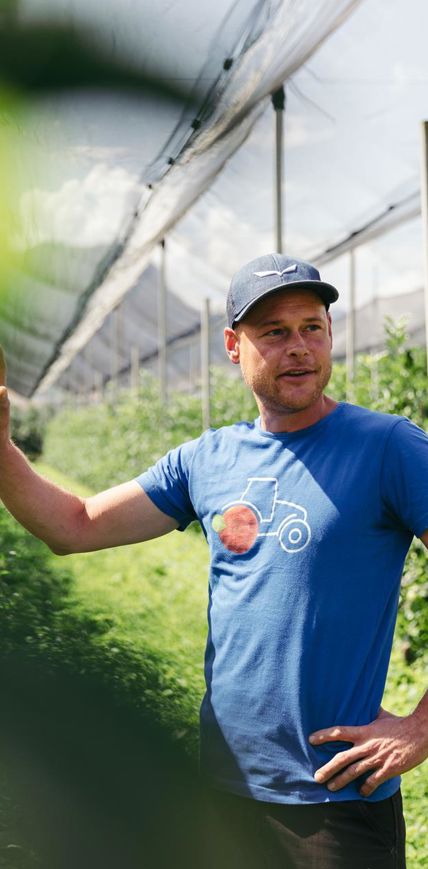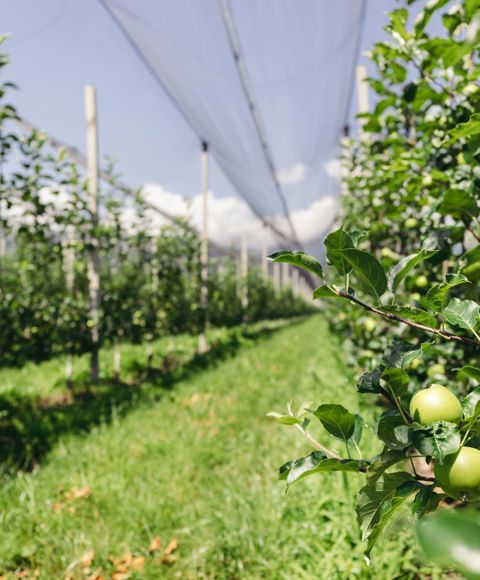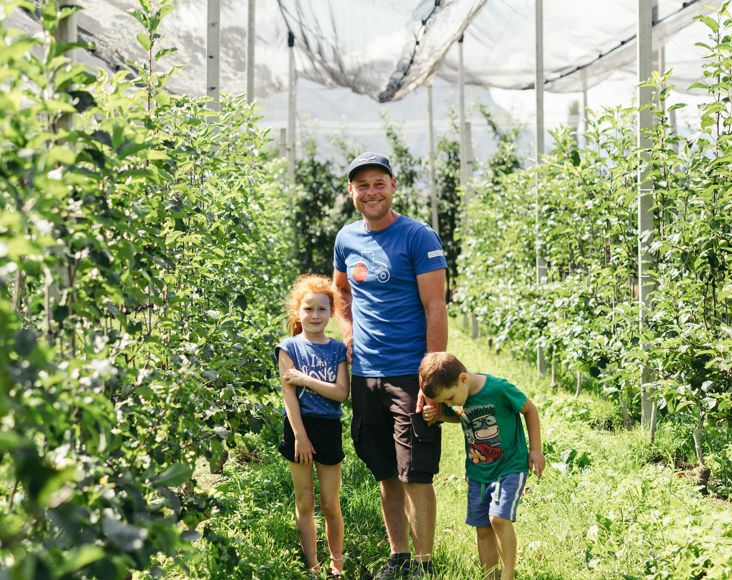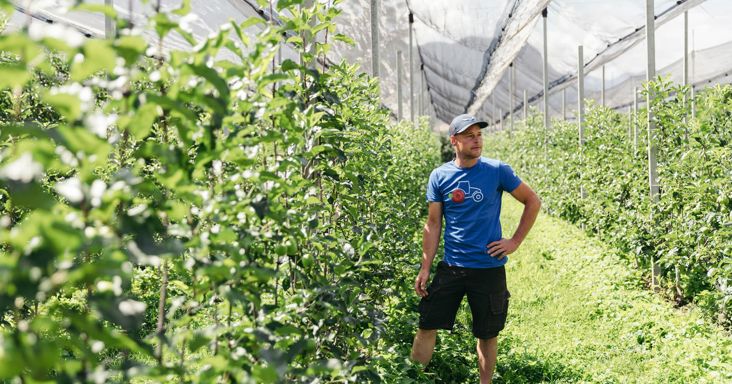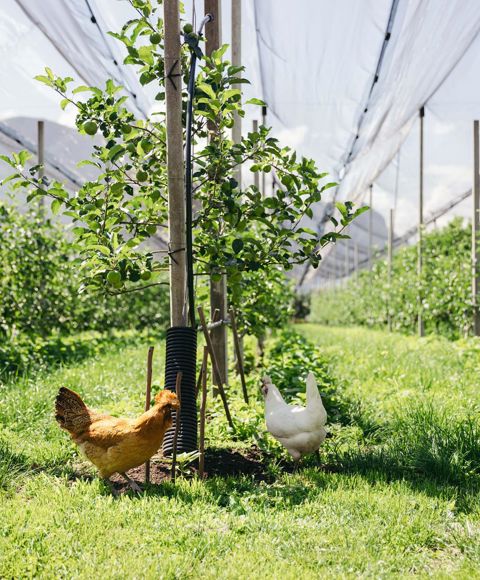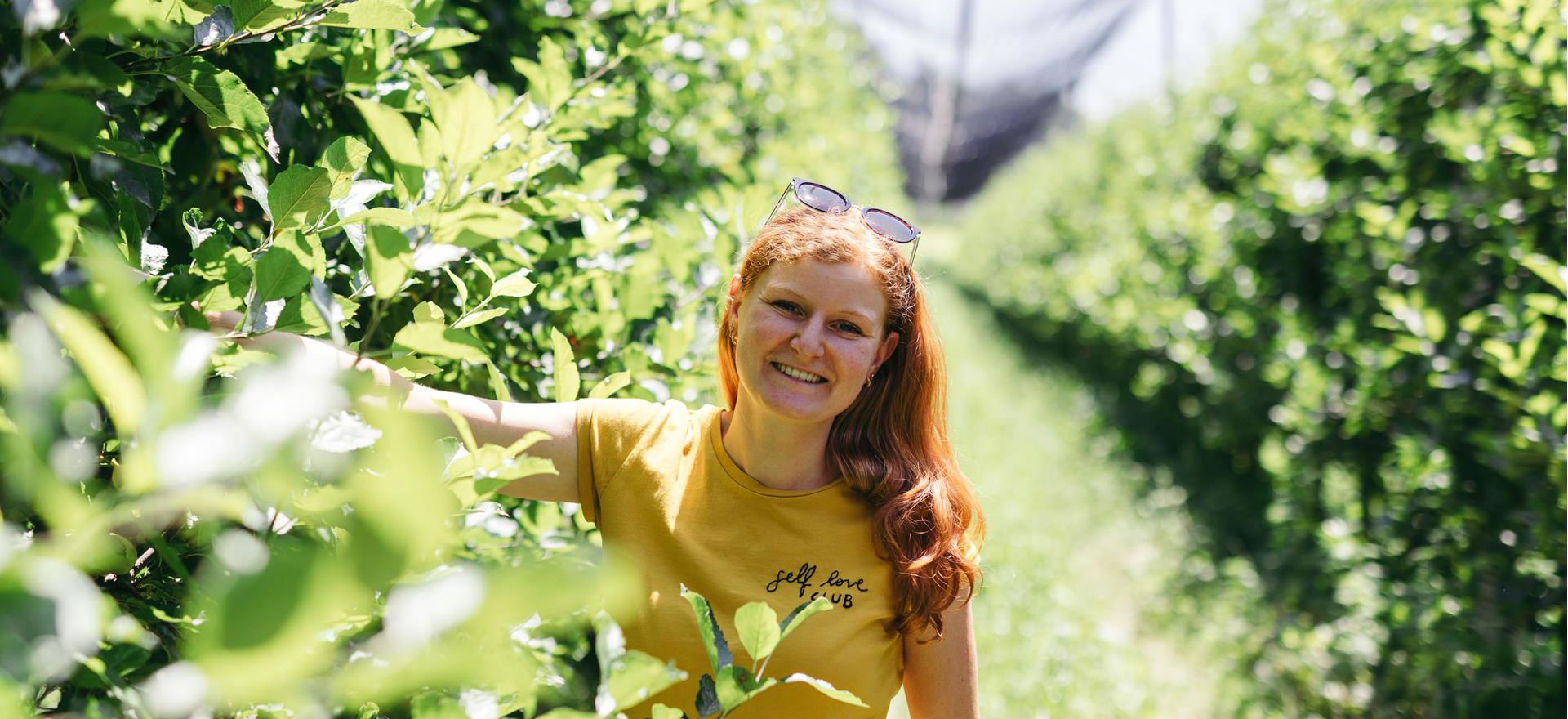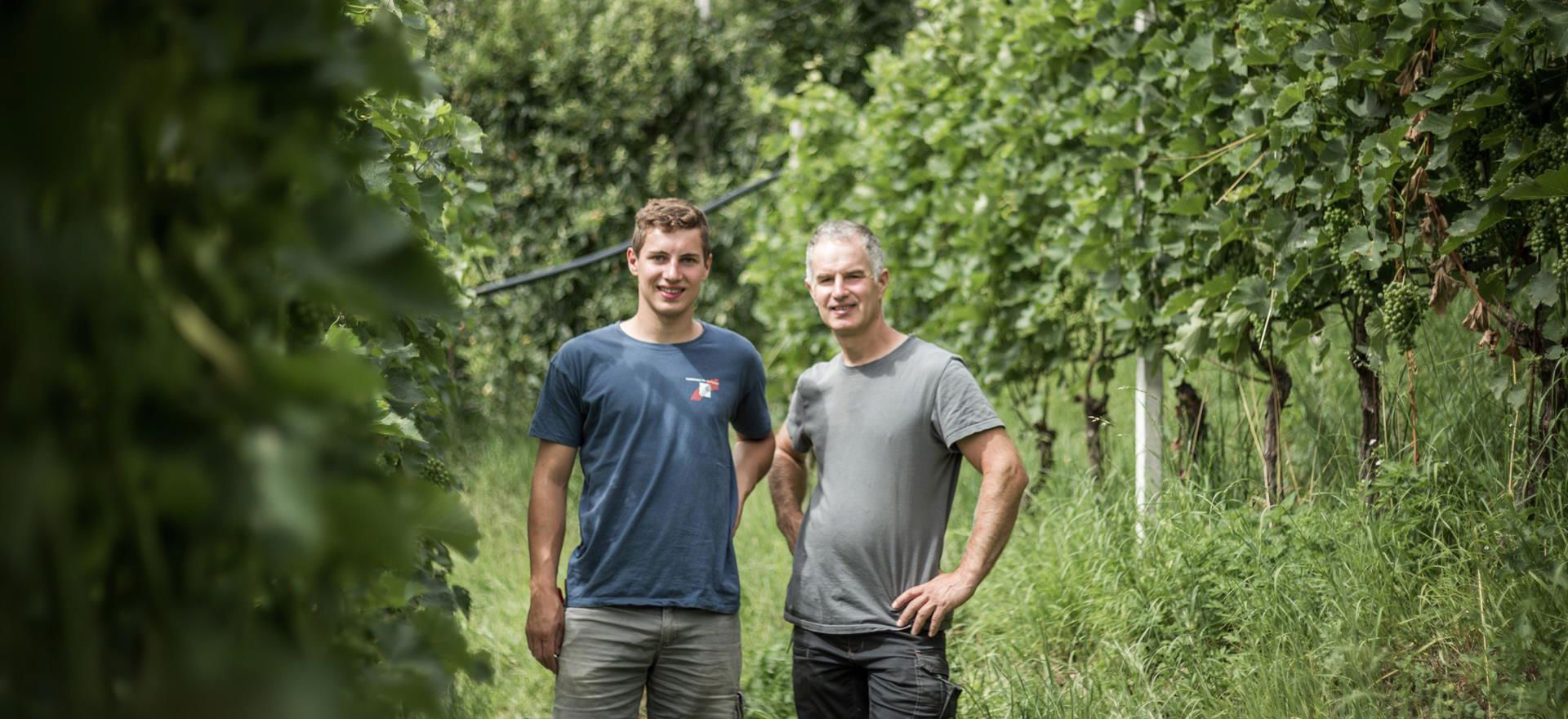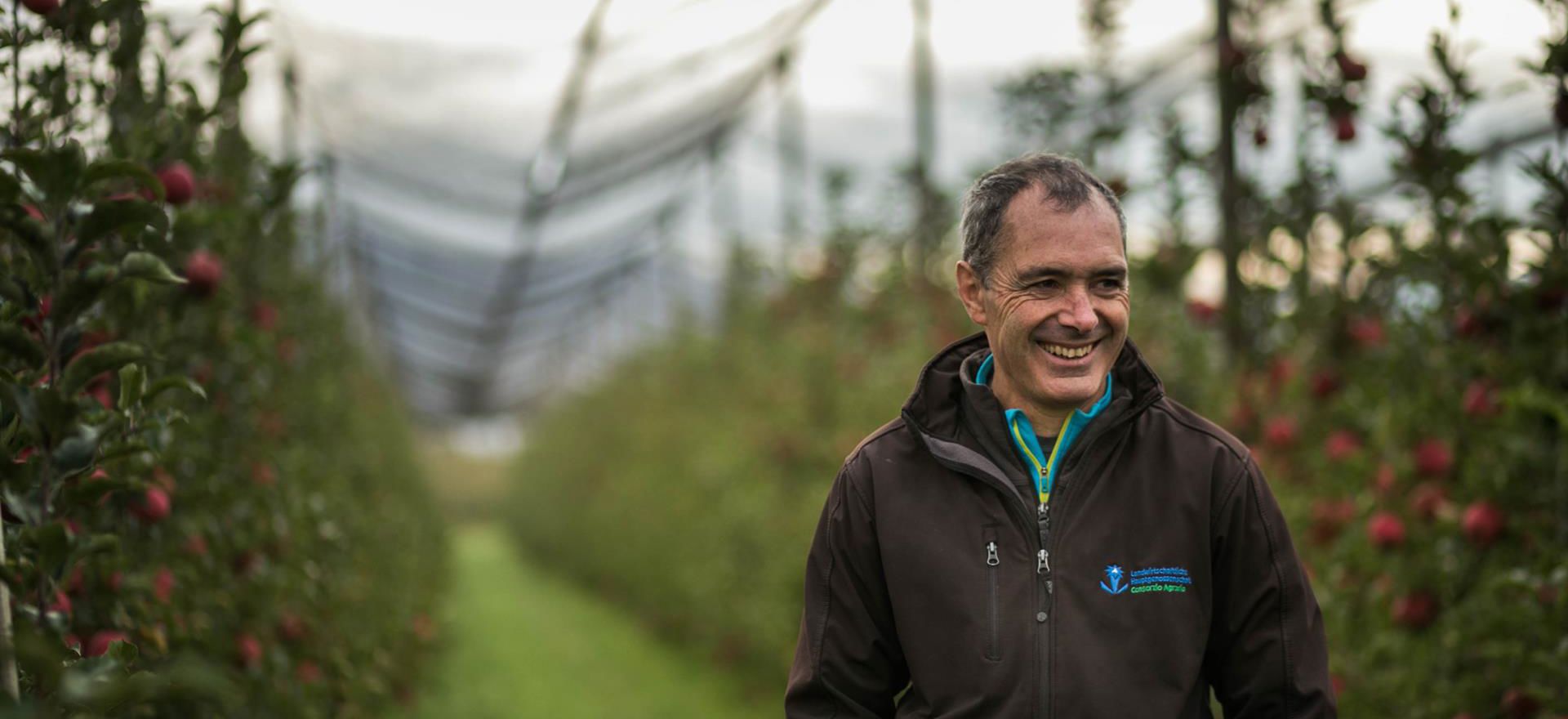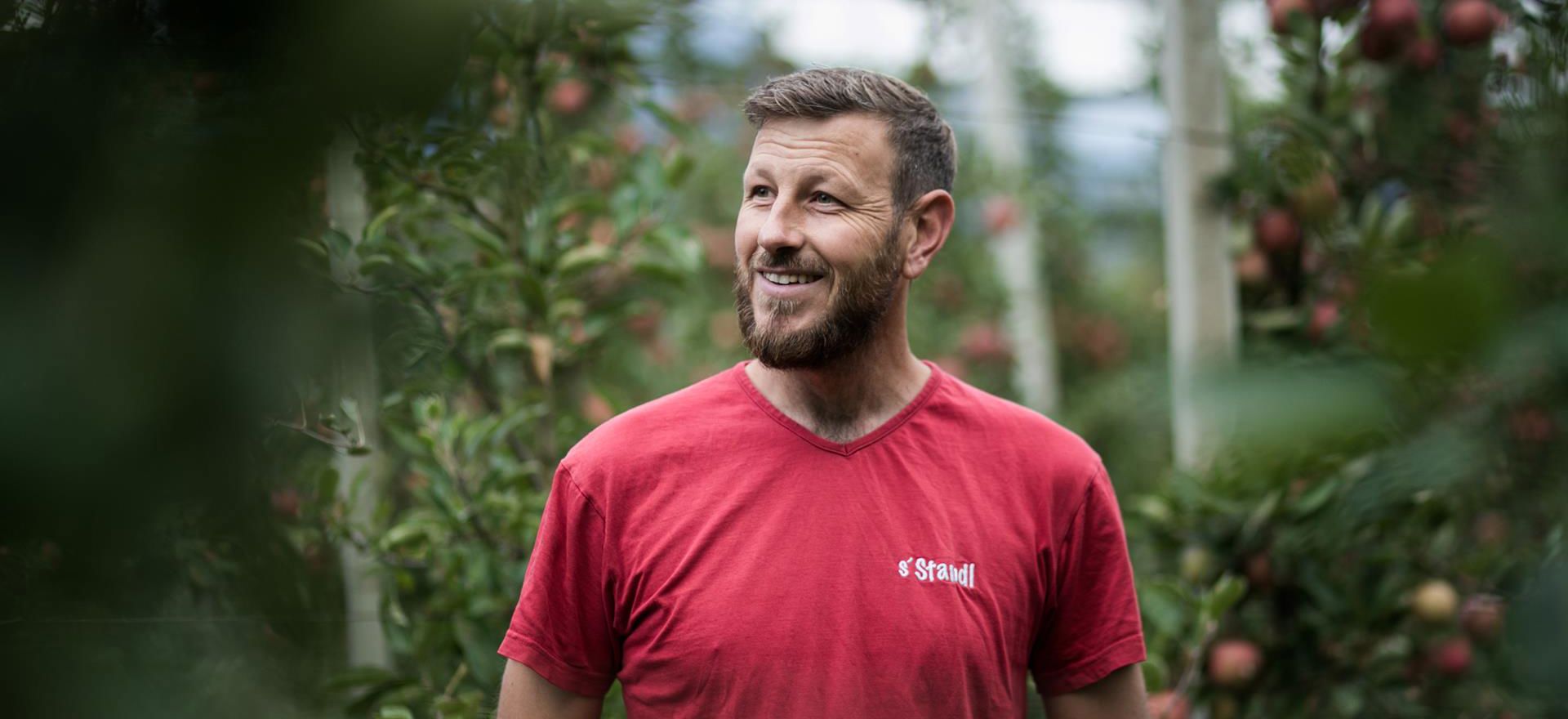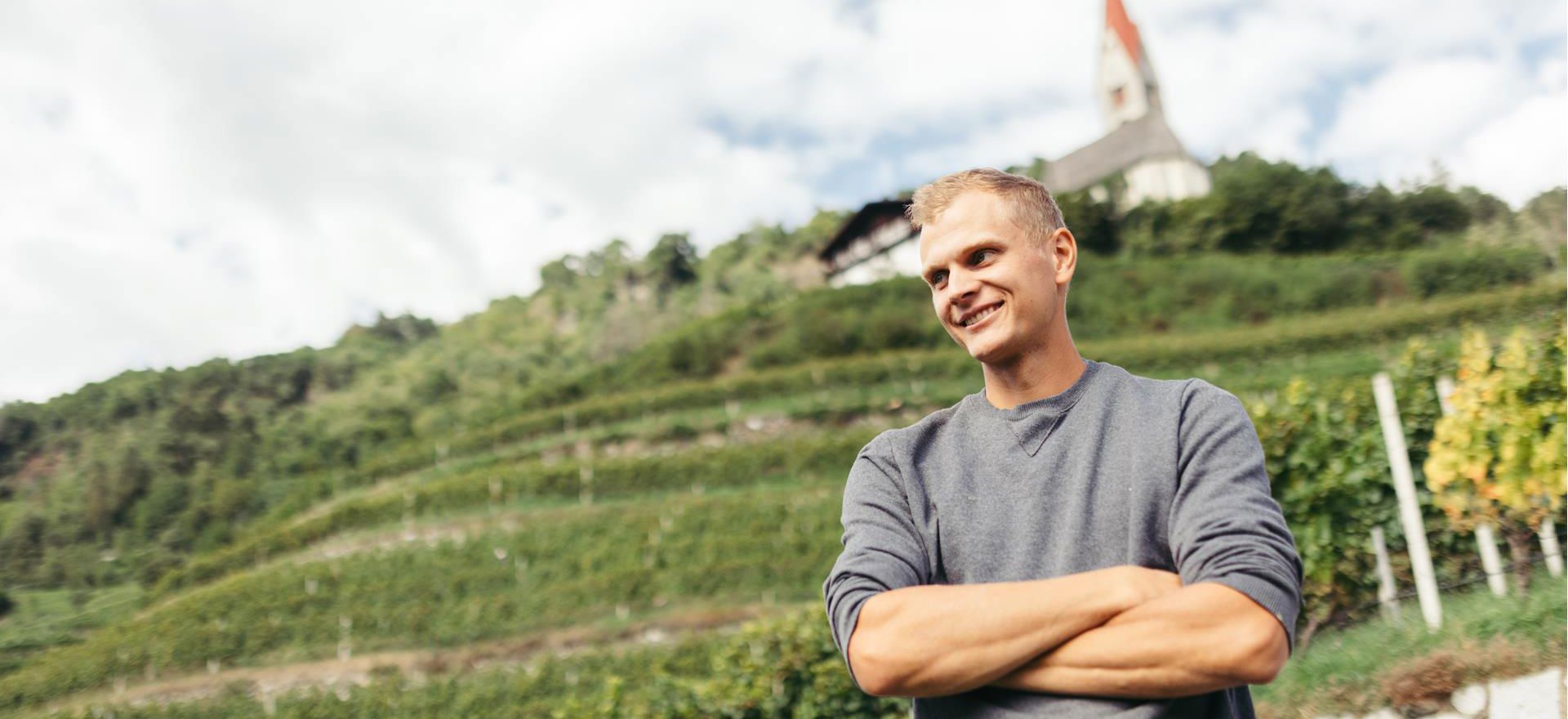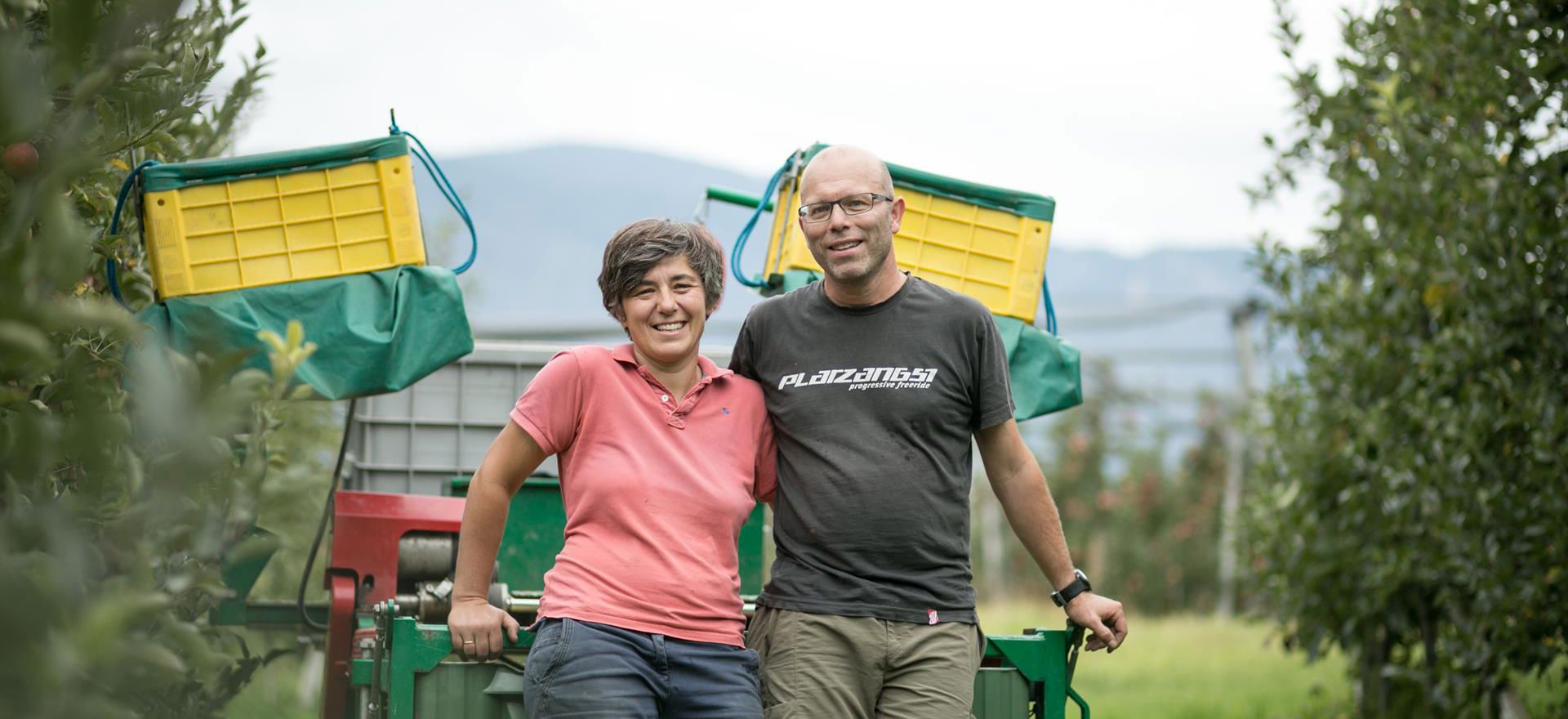It’s the beginning of July, in the middle of the apple grove in St. Jakob.
At first glance, you’d think you are looking at grapevines, as the small trees are horizontal and their side branches reach upwards. They are full of fruit: plum-sized, green spheres. Those are Andrea Zampedri’s apples. Today they are green, and in September they’ll turn bright red.
Andrea himself is still somewhat “green”. He is new to apple cultivation: he didn’t begin until 2017. Andrea used to be a refrigeration engineer. He did that job for 15 years and would probably have continued with it, as he enjoyed it. But then an opportunity came along. Andrea himself is still somewhat “green” – but he is radiant. He has ideas and a thirst for knowledge. He observes, makes sense of what he sees and doesn’t hesitate to simply try something out.
Like he is doing here with Natyra®, the new variety. And with the Guyot method, which is extensively used in viticulture.
As soon as the normal trees are tall enough, according to this method, the farmers don’t allow them to continue growing vertically. They align them horizontally. When the side branches form, they grow upwards on several axes and create a beautiful, flat wall of fruit.
Andrea himself is still somewhat “green”. He is new to apple cultivation: he didn’t begin until 2017. Andrea used to be a refrigeration engineer. He did that job for 15 years and would probably have continued with it, as he enjoyed it. But then an opportunity came along. Andrea himself is still somewhat “green” – but he is radiant. He has ideas and a thirst for knowledge. He observes, makes sense of what he sees and doesn’t hesitate to simply try something out.
Like he is doing here with Natyra®, the new variety. And with the Guyot method, which is extensively used in viticulture.
As soon as the normal trees are tall enough, according to this method, the farmers don’t allow them to continue growing vertically. They align them horizontally. When the side branches form, they grow upwards on several axes and create a beautiful, flat wall of fruit.


